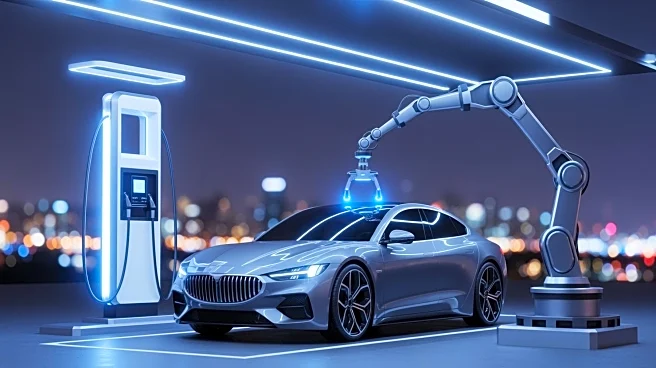What's Happening?
Tesla has reported a fourth consecutive quarterly profit decline despite an increase in sales. The company's third-quarter earnings fell by 37% to $1.4 billion, with shares dropping 3.5% in after-hours trading. The revenue increase was partly driven by customers
rushing to take advantage of a federal EV tax credit before its expiration. CEO Elon Musk emphasized a shift in focus towards Tesla's driverless robotaxi service and AI products, predicting significant growth in these areas. Musk announced plans to expand the robotaxi service to multiple metro areas by the end of the year, starting with Austin, Texas.
Why It's Important?
Tesla's financial performance and strategic shift towards robotaxi services highlight the challenges and opportunities in the electric vehicle market. The decline in profit, despite rising sales, underscores the competitive pressures and market dynamics affecting Tesla. The expansion of the robotaxi service represents a significant move towards diversifying revenue streams and capitalizing on autonomous vehicle technology. This development could impact the broader automotive industry, influencing trends in mobility services and autonomous driving technology.
What's Next?
Tesla's focus on expanding its robotaxi service suggests a strategic pivot that could redefine its business model. The removal of safety monitors from the driver's seat in Austin indicates confidence in the technology's readiness. As Tesla rolls out the service to additional metro areas, regulatory responses and consumer adoption will be critical factors to watch. The success of this initiative could accelerate the adoption of autonomous vehicles and influence regulatory frameworks, potentially reshaping urban transportation landscapes.















